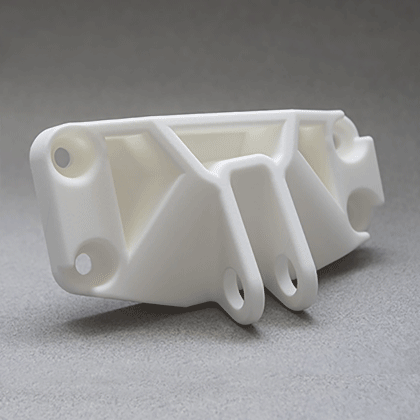The Evolution of Selective Laser Sintering (SLS)
As we delve into the world of it, it becomes clear that it has a vast and complex history sls print service.Exploring the versatility of Selective Laser Sintering (SLS) in manufacturing has become increasingly important in the modern industrial landscape. SLS, also known as powder bed fusion, is a 3D printing technology that utilizes a high-powered laser to selectively fuse powdered materials, such as nylon, into a solid structure. This additive manufacturing process has evolved significantly over the years, offering a wide range of applications across various industries.

Applications of SLS in Manufacturing
The versatility of Selective Laser Sintering (SLS) in manufacturing is evident in its diverse range of applications. From rapid prototyping to the production of end-use parts, SLS has proven to be a valuable tool for creating complex geometries with high precision. In the aerospace industry, SLS is used to manufacture lightweight, durable components for aircraft and spacecraft. Similarly, in the medical field, SLS is employed to produce custom implants and prosthetics with intricate designs that are tailored to individual patients.
Advantages of SLS in Manufacturing
When exploring the versatility of Selective Laser Sintering (SLS) in manufacturing, it's essential to consider the numerous advantages this technology offers. Unlike traditional manufacturing methods, SLS does not require the use of molds or tooling, making it a cost-effective solution for producing low to medium volume parts. Additionally, SLS allows for the consolidation of multiple components into a single, complex part, reducing assembly requirements and minimizing material waste. The ability to work with a wide range of materials, including engineering-grade thermoplastics, further enhances the versatility of SLS in manufacturing.
The Future of SLS in Manufacturing
As we continue to explore the versatility of Selective Laser Sintering (SLS) in manufacturing, it's evident that this technology holds great potential for the future. With ongoing advancements in materials science and process optimization, SLS is poised to become even more versatile, offering enhanced mechanical properties and the ability to produce larger parts at a faster pace. Furthermore, the integration of SLS with digital design tools and automation systems is set to revolutionize the way products are developed and manufactured, paving the way for a new era of on-demand, customized manufacturing.
In conclusion, the versatility of Selective Laser Sintering (SLS) in manufacturing is a testament to the innovative capabilities of additive manufacturing technologies. From its diverse applications to the numerous advantages it offers, SLS continues to push the boundaries of what is possible in the realm of manufacturing. As we look to the future, the continued exploration of SLS in manufacturing is sure to yield even more remarkable developments, further solidifying its position as a cornerstone of modern industrial production.








